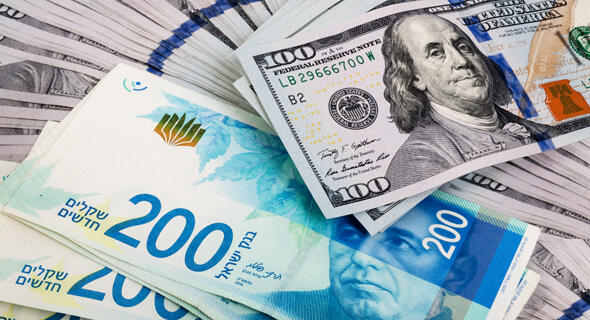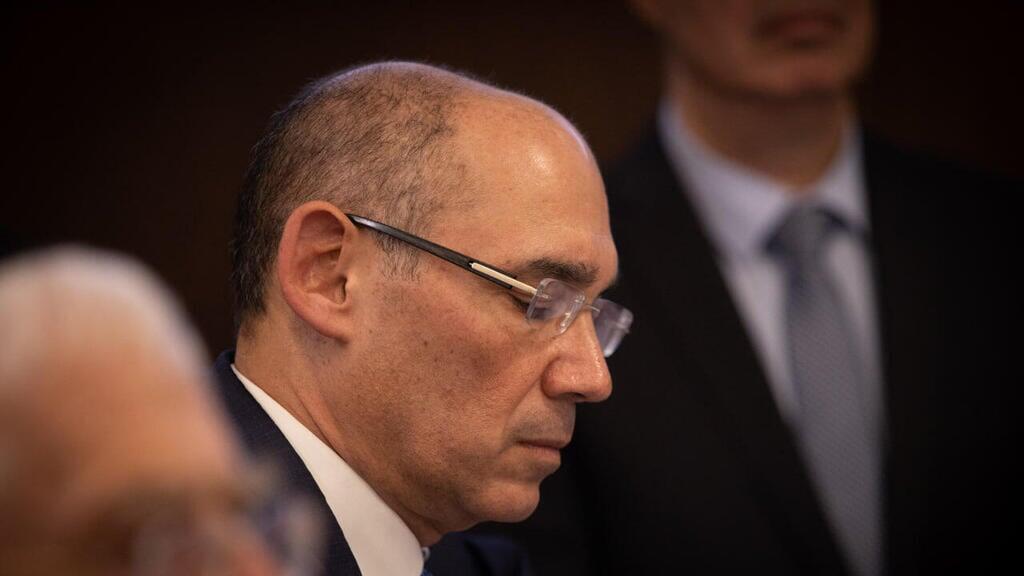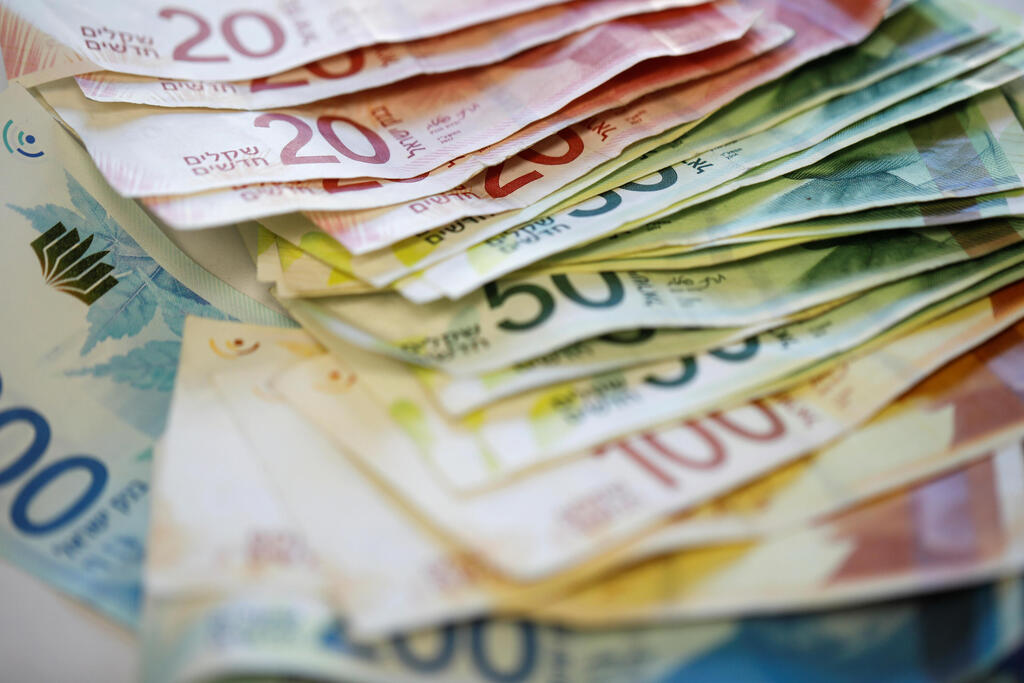The U.S. dollar appreciated by an additional 0.2% against the Israeli shekel on Monday, surpassing the exchange rate of 3.8 shekels per dollar, raising fears the Bank of Israel may intervene. Meanwhile, the euro also rose by about 0.4% against the shekel and traded around 4.138 shekels.
SHEKEL HITS LOWEST RATE, BUT FITCH RATINGS REMAIN POSITIVE
(iltv)
More stories:
Last week, the dollar added 0.53% to its value against the shekel, settling at a rate of 3.793 shekels, while the euro gained 0.19% and settled at 4.1206 shekels. Since the beginning of August, the dollar has strengthened by about 5% and the euro by about 3% against the Israeli currency.
A senior official at one of Israel's major banks told Ynet on Monday that, "the dollar is headed toward crossing the four shekel threshold, and there's a concern that the Bank of Israel won't have a choice but to raise interest rates again in about two weeks.”
“There's a possibility that the Bank of Israel will sell dollars in the coming days to bring down the rate, as they hold over $200 billion, some of which was acquired at a lower price than the current rate," the official added.
Accordingly, analysts at banks and investment firms are raising estimations that the Bank of Israel will raise interest rates by another quarter percentage point to 5% on September 4, which would bring the prime rate to 6.5%, compared to just 1.6% in April 2022.
The increase in foreign currency exchange rates is already making imports more expensive, and the impact is noticeable with hundreds and even thousands of shekels added to the prices of products released from customs, such as cars and electrical appliances.
Imported food products are also becoming more expensive, and retailers are no longer absorbing the impact of price hikes from the increase in foreign currency exchange rates.
Those vacationing abroad who are paying with credit cards have lost hundreds of shekels if they hadn't purchased foreign currency before their trip last month. Conversely, the current trend is a boon for exporters, which will also be reflected in their future tax payments.
Most analysts argue that the weakening of the shekel is a result of political instability in Israel due to the announcement that further clauses of the proposed judicial overhaul will be legislated soon.
Other contributing factors raised by analysts are the security situation following a flurry of attacks, instability within the IDF, volunteer reservists pulling out of service and the harsh criticism leveled at IDF high command by some members of the coalition.
Prof. Dan Ben-David, an economist at Tel Aviv University’s Department of Public Policy and head of the Shoresh Institution for Socioeconomic Research, told Ynet in an interview on Monday that "the dollar is currently strengthening across the world, but we did our part to help it. The uncertainty caused by the government is reaching levels we haven't seen before.”
"One of the most problematic things for the market is uncertainty: investors are afraid to invest, and so they're not spending money and so on. And we can see the results. For example, in the stock market - in the eight months between the elections and the end of June, a huge gap was created between the countries’ stock exchanges,” he explained.
“As capital leaves Israel, we see the shekel losing its value, and according to the latest data, the currency’s devaluation stands at 17% since the beginning of the year," Ben-David claimed.
According to him, "This means that everything we import costs more money, and that raises inflation. The government that should be fighting inflation is actually fighting to increase it - it's ironic. All of this is short-term damage; the long-term damage to the government could be catastrophic.”
“This event is growing to proportions we’ve never known before. There used to be a status quo, and it was broken,” he explained.
“The problem with the Bank of Israel is that the government left them as the only active supervisor. They'll have to hike interest rates due to the gaps between currencies. If they do that, it’ll hurt mortgages, among other things. [The central bank] has no choice,” Ben-David said.






